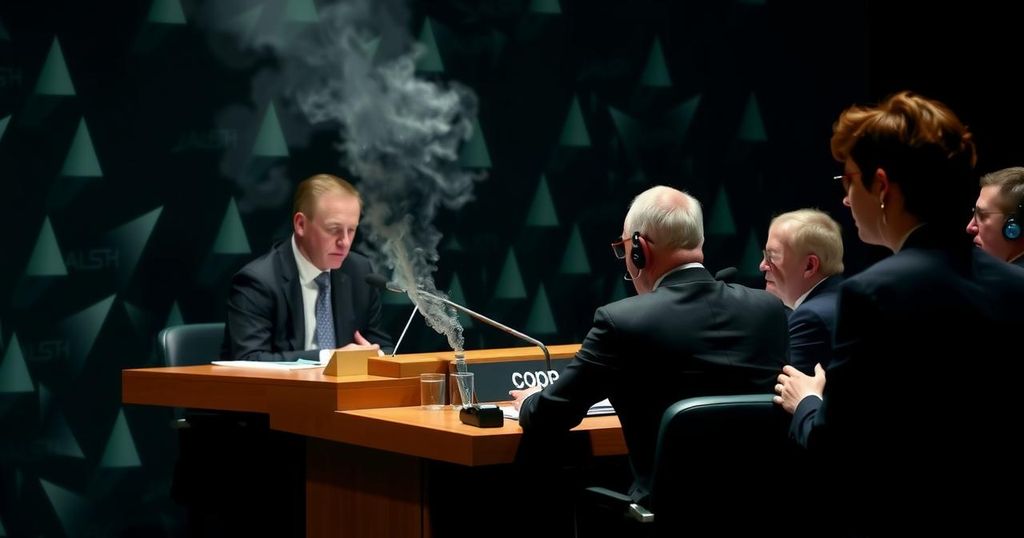Divergent Climate Strategies Amidst Urgency at COP29
At COP29, world leaders debated climate change strategies amid a report indicating that carbon emissions have reached record highs, necessitating net-zero by the late 2030s. While some defended fossil fuels, others warned of the urgency for action, particularly from vulnerable nations. Financial commitments from developed countries remain a key contentious issue as developing countries demand more substantial assistance to tackle climate challenges.
Global leaders presented divergent strategies for addressing climate change during the UN-led COP29 climate talks in Baku, Azerbaijan. A salient report highlighted the necessity for achieving carbon neutrality sooner than initially anticipated, recommending a shift to net-zero CO2 emissions by the late 2030s to adhere to the Paris agreement target of limiting temperature rise to 1.5 degrees Celsius. While some leaders supported fossil fuel reliance, others cautioned against the impending climate crises facing vulnerable nations. Amidst ongoing discussions, the necessity for substantial financial commitments from wealthier nations remains contentious, as developing countries advocate for significant annual climate funding amid growing economic difficulties.
The issue of climate change and its repercussions continue to dominate global discourse, notably during the annual United Nations Climate Change Conferences. At COP29, delegates convened to forge agreements aimed at bolstering financial support for developing countries grappling with climate-related challenges. Recent scientific findings indicate that global carbon emissions from fossil fuels have reached unprecedented heights, prompting renewed urgency in deliberations. Leaders representing nations inflicted by climate disasters expressed alarm over delayed actions and a lack of concrete financial commitments from wealthier counterparts.
The COP29 talks revealed deep divides among global leaders on climate action strategies, underscored by alarming findings of rising carbon emissions. The urgent call for achieving carbon neutrality by the late 2030s contrasted sharply with some leaders’ defenses of fossil fuel usage. The discussions also exposed the profound disparities in climate funding, as developing nations seek more robust financial support to combat climate crises, highlighting the critical need for decisive international cooperation.
Original Source: www.rfi.fr




Post Comment